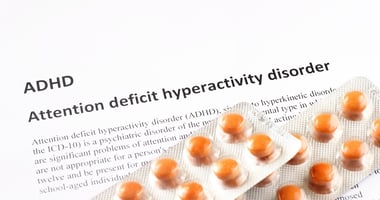Amphetamine Found to Have Higher Risk of Psychosis Than Methylphenidate for ADHD
 |
Both types of medication are commonly prescribed for ADHD. In 2007, the Food and Drug Administration mandated changes to the drug labels of stimulants because of the risk of psychosis associated with their use.
“The risk of new-onset psychosis was approximately 1 in 660 patients who received a prescription for stimulants for ADHD, but the risk was about twice as high among patients who started amphetamine,” wrote Lauren V. Moran, M.D., of the Division of Psychotic Disorders at McLean Hospital and colleagues.
The researchers used two large health care databases, Optum Clinformatics and IBM MarketScan, to analyze claims for 110,923 patients aged 13 to 25 who were prescribed amphetamine for ADHD, and the same number of patients who were prescribe methylphenidate. The primary outcome was a new diagnosis of psychosis for which an antipsychotic medication was prescribed during the first 60 days after the date of the onset of psychosis.
There were 343 episodes of psychosis: 106 episodes (0.10%) in the methylphenidate group and 237 episodes (0.21%) in the amphetamine group.
Moran and colleagues wrote that the absolute rate of psychosis and the difference in the rates of psychosis between the two treatment groups was low, but this difference may be clinically significant in the context of the very large number of people who are prescribed stimulants for ADHD.
“In the databases used for this study, 2 million patients received a prescription for amphetamine,” they wrote. “A difference of 1 per 1000 person-years potentially confers additional risk of psychosis with amphetamine in thousands of patients.”
For related information, see "Helping Parents and Teachers Understand Medications for Behavioral and Emotional Problems: A Resource Book of Medication Information Handouts, Fourth Edition," published by APA Publishing.
(Image: KatarzynaBialiasiewicz/istock.com)






